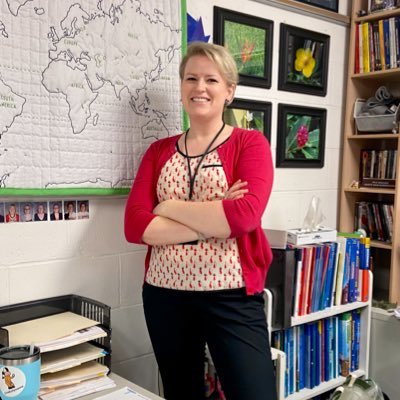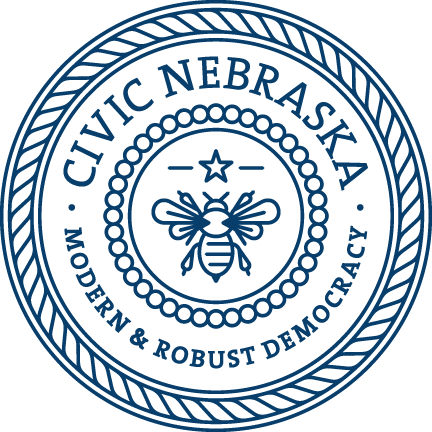Profiles of Civic Health
Innovation in Civic Education
Lacey Glasford and Elizabeth Dunn are getting their students’ feet wet to teach civics in Nebraska City. Quite literally.
Through a partnership with the University of Nebraska and National Geographic, Glasford’s students will analyze the composition of local lakes and streams, research issues like levels of pollutants, and make the solutions they find a reality. And from there, they’ll learn how they can advocate for positive, lasting, informed change.
Glasford said the project will allow students to practice participating in the community. As a civics teacher at Nebraska City High School, she considers that an essential part of her duty.
“It’s our job to create an environment in which students can have a meaningful discussion with the facts, knowing where the facts are, and coexisting in a world where politics can be really divisive,” Glasford said.
Taylor Hamblin, a doctoral candidate in teaching, curriculum, and learning at Nebraska U., is partnering with the Nebraska City instructors on the project. He said it’s an opportunity to translate learning from the field into political action.
“Students will learn how to interpret data (about the water), what’s polluting it, what’s causing these poisonous algae that we sometimes see,” Hamblin said. “Based on determining the problem and solution, they’ll then come up with a political answer. Should we make an informational campaign? Should we write some legislators? How is this going to fix the problem?”
In the classroom, Glasford will help students understand the different actions and how to research solutions. In the end, the students will decide the best way to take civic action.
Service-learning projects like the one emerging in Nebraska City not only provide students with beneficial real-world experiences. They also serve as a bridge between students and the community. Students would like to be involved in the community, Glasford said, but often aren’t sure where to begin.
A quality civics education is an investment in the community that will benefit the whole community in the long run, she said.
Dunn, who teaches middle-school social studies in Nebraska City and helped get the partnership started, said connecting students to their community through service can bridge a perceived divide.
“There tends to be this ‘us vs. them’ (between the community and school) and I think the pandemic has caused that,” Dunn said, citing as examples recent debates over face masks or new state health standards, which can seemingly pit community members against their schools. “Increasing our students’ civic involvement in an educated way (can) reduce the possibility of that happening in the future.”
While the focus is often on what schools do to prepare students to participate in civic life after they graduate, Dunn and Glasford said today’s adults play a big role in students’ civic readiness. They can show students how to be involved – and be sure to value their contributions when students do.
When the water project gets underway in Nebraska City, students will learn hands-on skills and lasting knowledge about the waters of Nebraska. But a deeper, lasting value beyond that training is the importance of taking one’s place in the community.
“One of the biggest benefits has been to reach out to stakeholders and show the kids that the community cares about them and that they have a voice and how we are going to work together,” Dunn said.
– Daniel Bennett, Civic Nebraska

Elizabeth Dunn
Nebraska Department of Education

Lacey Glasford
Nebraska City High School
